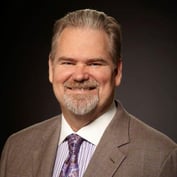(Bloomberg) — Federal Reserve Chair Janet Yellen, easing investor concern that interest rates may rise earlier than previously forecast, said the world’s biggest economy will need Fed stimulus for “some time.”
Yellen said today the Fed hasn’t done enough to combat unemployment even after holding interest rates near zero for more than five years and pumping up its balance sheet to $4.23 trillion with bond purchases.
“This extraordinary commitment is still needed and will be for some time, and I believe that view is widely shared by my fellow policy makers,” Yellen said at a community development conference in Chicago. “The scars from the Great Recession remain, and reaching our goals will take time.”
See also: Evans sees Fed raising interest rates in second half of 2015
Yellen spotlighted as evidence “real people behind the statistics,” describing how one person, Vicki Lira, lost two jobs, endured homelessness and now serves food samples part-time at a grocery store.
Stocks rose as Yellen underscored the Fed’s commitment to spur the economy and put 10.5 million unemployed Americans back to work. Share prices fell on March 19, when she said in a press conference that the Fed might start raising the benchmark interest rate above zero about six months after ending its bond purchase program. Yellen didn’t mention a timetable today.
‘Long time’
“It is an indirect pushback,” said Ward McCarthy, chief financial economist at Jefferies LLC in New York. “I don’t think she could directly contradict what she said at the press conference, so she did the next best thing, which was to paint a picture of a Fed that is going to be accommodative for a long, long time.”
The Standard & Poor’s 500 Index advanced 0.8 percent to 1,872.34 as of the close of trading in New York. The yield on two-year Treasury notes, which are sensitive to changes in Fed policy, fell 0.03 percentage point, to 0.42 percent, near last week’s highest closing level in six months.
See also: Janet Yellen to the rescue?
Large numbers of partly unemployed workers, stagnant wages, lower labor-force participation and longer periods of joblessness show that “there remains considerable slack in the economy and the labor market,” Yellen said.
Today’s speech shows Yellen is inclined to press on with accommodation to boost employment because she focused on slack in the labor market and didn’t mention economic growth or “more hawkish themes” such as the risks from record easing, said Thomas Costerg, an economist at Standard Chartered Plc in New York.
‘Yellen-esque’
“It was dovish and Yellen-esque, but she didn’t explicitly backpedal on the six months comment so that’s a ghost that will stay in the background,” Costerg said. “She didn’t explicitly say ‘Oh, I made a mistake,’ she just stressed the other way, that we need accommodative policy for some time.”
At her press conference last month, Yellen emphasized that the timing for an increase in the main interest rate hinges on economic performance.
The Federal Open Market Committee needs “to see where the labor market is,” she said on March 19, adding that if inflation “is persistently below” the central bank’s 2 percent goal, “that is a very good reason to hold the funds rate at its present range for longer.”
Inflation decelerated to a 0.9 percent 12-month pace in February from 1.2 percent in January and has been below the Fed’s 2 percent target for almost two years.
Slack mentions
Yellen’s speech today included repeated references to “slack,” a term also used recently by Bank of England Governor Mark Carney to underscore a pledge to keep interest rates at a record low.








 April 01, 2014 at 08:16 AM
April 01, 2014 at 08:16 AM










